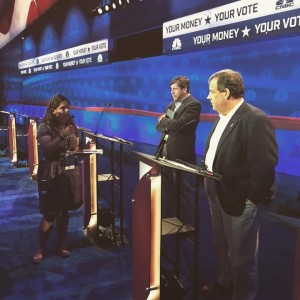This is mark Joseph “young” blog entry #211, on the subject of New Jersey 2017 Ballot Questions.
New Jersey tends to be blase about our off-year elections–no President, no United States Senators, no United States Congressman, why bother going to the polls? Yet as we noted this year the election is not insignificant. Every State elected office is on the block, from our Governor and Lieutenant Governor to all forty of our State Senators to all eighty of our State Assemblymen. Additionally, there are two ballot questions put forward, asking the voters to approve spending more money.
That’s certainly more than we can cover. We have already examined the gubernatorial race, and promised to return to look at the ballot questions. There are two:
- The Bonds for Public Libraries Measure;
- The Revenue from Environmental Damage Lawsuits Dedicated to Environmental Projects Amendment.

The Bonds for Public Libraries Measure has tremendous support; more than half the members of the State Assembly are listed as sponsors of the bill. It passed both houses overwhelmingly, and was signed by Governor Christie. However, the few objectors have some good points.
Approval of the question would allow the state to issue bonds in the total amount of one hundred twenty-five million dollars, the proceeds to be used as matching funds for projects within the state to build, equip, or expand public libraries. Those grants would have to be matched by like amounts from local governments and/or private donations. Despite the increasing use of the internet for many of those resources for which once libraries were the primary providers, the library system continues to be important and to update itself to modern needs. It thus makes sense to continue to support our libraries.
On the other hand, New Jersey is already in the top five states for per capita expenditures on libraries; we have one of the best library systems in the country. The words “issue bonds” really mean “borrow money at interest”, and would be committing the state to repay one hundred twenty-five million dollars plus interest over the years ahead. It is worth asking whether there would be sufficient return on the investment. That is, would we be getting our money’s worth?
I am inclined to think not, but I rarely use the libraries and do not have a card. I also think that our county library is well funded and well equipped, and while I can imagine (but do not know) that there are urban areas in the state with underfunded libraries, the matching funds clause will make it at least challenging for these areas to take advantage of the benefits. If we had the money, it might be money well spent, but to borrow money for that which is not a problem is looking to make a bad fiscal crisis worse. It’s like the family that can’t keep up with the mortgage taking out a second mortgage to pay for a vacation. We don’t really need this, and we probably can’t afford it.
The Revenue from Environmental Damage Lawsuits Dedicated to Environmental Projects Amendment is about creating a “lockbox” for certain state income.
If you remember the ballot questions last year, you may recall that the issue with the fuel tax question involved whether to “dedicate” that income to transportation matters. That question of dedicating specific funds for specific purposes arises again in this question, and with a more solid basis.
New Jersey has held the lead in industrial waste and toxic waste sites over the decades. Periodically the State sues offenders, and either in awards or settlements often collects millions of dollars. Cases related to the pollution of the Passaic River brought three hundred fifty-five million dollars from defendants.
The State is in one sense like any other plaintiff. If you’re injured in an automobile accident and win a substantial settlement in a lawsuit, we might think that this is going toward your long-term medical bills–but if you want to spend some of it on a new car, or a Jacuzzi®, or a vacation, it’s your money. You might in the long term wish you’d saved it for medical care, but no one is going to force you to do that.
In the same way, once the State has won a lawsuit or obtained a settlement from one, it can do whatever it wants with the money. We might think that the money from the Passaic River lawsuits would go to clean the Passaic River, or at least to meet other environmental needs in the area. Some of it of course would pay the legal fees for the suit, but ultimately the reason for the money is the damage done to the environment, and so the money should repair that damage. However, just like you, the State is not so constrained. Of that three hundred fifty-five million dollars from the Passaic River damages, Governor Christie applied two hundred eighty-eight million to the general funds to balance the budget. A substantial number of Democrats in the state legislature believe that that should not be allowed, although the Democratically-controled legislature did approve his budgets.
Approval of this question would pass a constitutional amendment which would restrict the use of such monies to environmental purposes. It would allow up to ten percent of such income to be spent on related government agencies such as the Department of Environmental Protection, and would allow the legal costs of prosecuting such cases to come out of the funds, but the bulk of it would have to be spent on the environment, reclaiming damaged areas and protecting others. Many think the amendment makes sense.
On the other hand, had such a restriction already been in place, we would have been looking at a two hundred eighty-eight million dollar budget shortfall. That means either the State would have had to raise two hundred eighty-eight million more dollars through taxes or it would have had to cut a like amount in services, or some combination of the two. The big ticket items in the New Jersey budget are education (about thirty percent) and Medicaid (almost twenty-five percent). There is not a lot of fat in the budget to cut.
Further, while there is merit to the notion that money collected as legal damages for harm to the environment ought to go to environmental care and repair, there is also a significant question concerning the consequences of sequestering that money. Damage to the environment almost always means secondary damage as well–damage to public health, damage to infrastructure, economic damage. If my accident prevented me from finishing college, the damages I won in the law suit will, among other things, cover the fact that I was unable to finish college. The damages from these environmental lawsuits ought to be available to pay for the injury inflicted to the State beyond the first level of harm, covering these other losses. Sequestering the money in a “lock box” prevents the state from using it to meet needs that might well be consequential to the damage.
Desite the merit in the idea, I think it ultimately a bad choice.
Those are the questions on New Jersey’s ballot this year.

